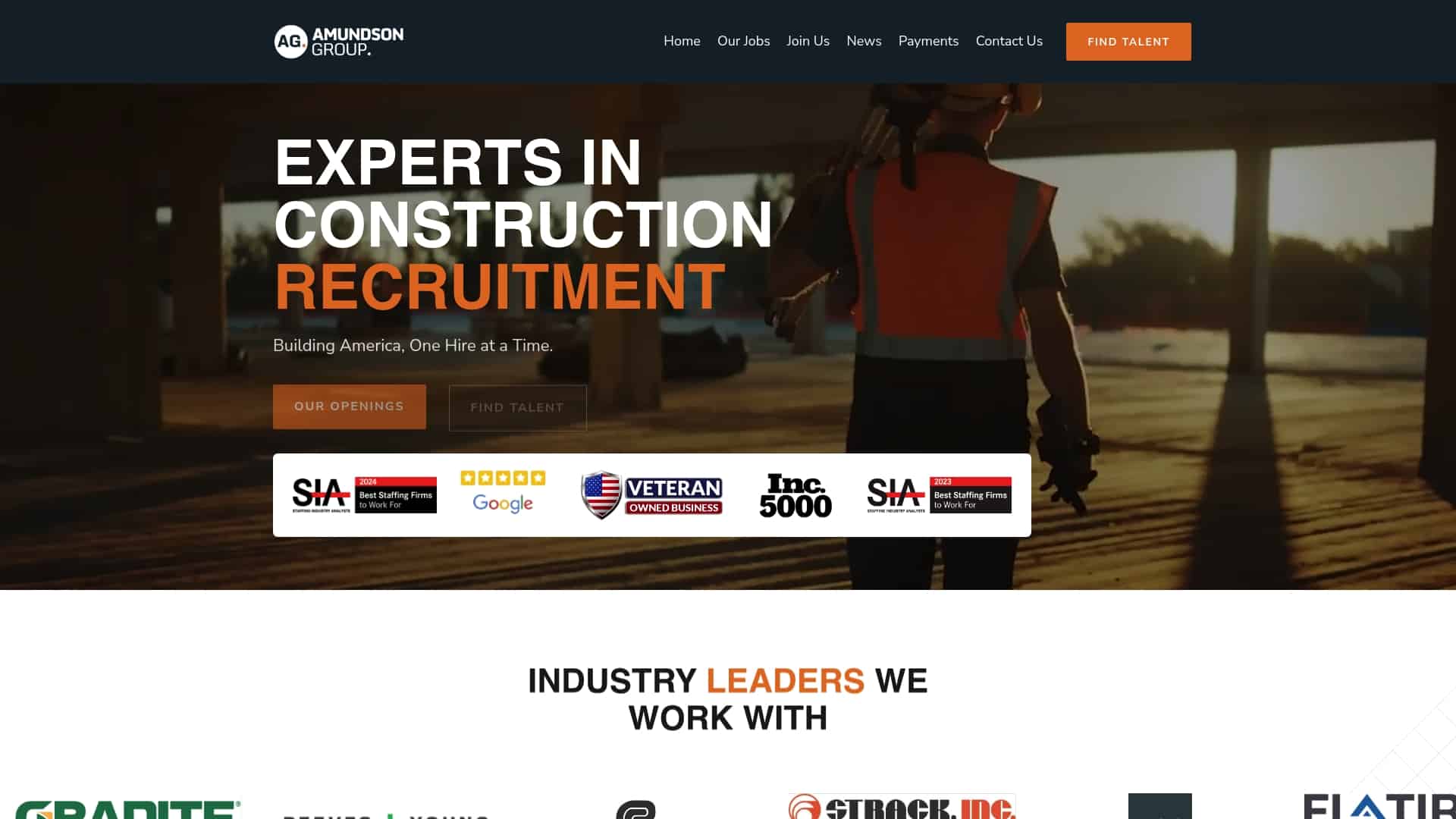The construction industry is booming, offering diverse job opportunities that might surprise you. Inside construction jobs go beyond hard hats and cranes; they encompass an array of roles from skilled trades to management. Yet, here’s the twist: while many think of physical labor as the primary focus, the real game-changers are the specialists behind the scenes. With the right skills and training, you can unlock a rewarding career that shapes the buildings and infrastructure we rely on every day.
Understanding Inside Construction Jobs
The construction industry forms the backbone of modern infrastructure development, offering a diverse landscape of career opportunities beyond what meets the eye. Inside construction jobs encompass the full spectrum of roles that bring buildings and structures from concept to completion. These positions range from hands-on trades to technical specializations and management roles, each contributing unique expertise to construction projects.
Core Construction Trades and Specializations
At the heart of the construction industry are the skilled trades that form the foundation of any project. Carpenters, electricians, plumbers, masons, and equipment operators represent just a few of the essential roles within inside construction jobs. Each trade requires specific technical skills and often involves a formal apprenticeship pathway to mastery.
According to industry research, entry-level opportunities in specialized trades like bricklaying can earn between $39,000-$61,000 annually, providing solid income potential for those entering careers in building construction. What makes these construction trade jobs particularly valuable is their combination of hands-on work, technical knowledge, and job security.
Beyond the traditional trades, specialized roles have emerged to meet modern building demands:
- Sustainable building specialists focusing on environmentally friendly construction methods
- Technology integration experts implementing digital systems in construction
- Safety compliance officers ensuring all work meets regulatory standards
Management and Administrative Positions
Successful construction projects rely heavily on skilled management and administrative professionals who coordinate the complex moving parts of any build. Project managers serve as the central hub, overseeing schedules, budgets, and resource allocation while ensuring quality standards are maintained throughout.

Construction estimators calculate project costs with remarkable precision, while site superintendents oversee daily operations and team coordination. Administrative roles handle essential documentation, permit processing, and client communications that keep projects running smoothly.
The career progression within construction management often begins with field experience before moving into supervisory roles. This hands-on foundation gives construction managers valuable practical insight that informs their decision-making as they advance in careers in the construction industry.
Technical and Support Specialists
Modern construction projects increasingly rely on specialized technical experts who bridge the gap between design concepts and practical implementation. Building Information Modeling (BIM) specialists create detailed digital representations of structures before physical work begins. Surveying technicians ensure precise measurements and site preparation, while quality assurance inspectors verify that all aspects of construction meet code requirements and project specifications.
These technical roles within jobs in the construction trade often require formal education in engineering, architecture, or construction science, combined with specialized certifications. They represent some of the fastest-growing opportunities in the building industry as construction firms embrace advanced technologies and methodologies.
The diversity of inside construction jobs creates numerous entry points and career pathways for individuals with varying interests, educational backgrounds, and skill sets. Whether you’re drawn to hands-on craftsmanship, technical problem-solving, or project leadership, the construction industry offers meaningful career opportunities with strong growth potential.
Key Takeaways
| Takeaway | Explanation |
|---|---|
| Diverse Career Opportunities | The construction industry offers a wide range of inside construction jobs, from hands-on trades to technical roles and management positions, catering to various interests and skills. |
| Importance of Certification and Training | Structured training, apprenticeship programs, and industry-recognized certifications are essential for validating skills and advancing in construction careers. |
| Strong Growth Potential | The construction industry is projected to experience significant salary increases and a growing demand for skilled professionals, particularly in specialized trades. |
| Essential Skills for Success | Core competencies, including technical proficiency, problem-solving abilities, physical capabilities, and effective communication, are crucial for thriving in inside construction jobs. |
| Networking for Advancement | Building a professional network and seeking mentorship can provide crucial support and insights, helping navigate career pathways and unadvertised opportunities in the construction field. |
Essential Skills for Inside Construction Jobs
Success in inside construction jobs requires a diverse skill set that balances technical expertise, physical capabilities, and interpersonal attributes. Whether you’re considering entry-level positions or advancing within careers in construction, developing these core competencies will significantly enhance your value and effectiveness on construction sites.
Technical Proficiency and Trade-Specific Skills
Construction trade jobs demand specialized knowledge that varies by position but shares common foundations. Blueprint reading stands as a fundamental skill across virtually all construction roles, enabling workers to translate two-dimensional plans into three-dimensional structures. This skill requires spatial reasoning and attention to detail that comes with both training and experience.
According to research from the Skilled Trades College, proficiency with hand and power tools remains essential across construction specializations. From basic hammers and measuring devices to sophisticated power equipment, the ability to select and safely operate the right tool for each task is non-negotiable in careers for construction professionals.
Material knowledge provides another critical technical foundation. Understanding the properties, limitations, and appropriate applications of construction materials—whether concrete, wood, steel, or modern composites—directly impacts both quality and safety outcomes. This knowledge typically develops through a combination of formal training and hands-on experience in jobs in the construction trade.
Trade-specific skills form the specialized expertise that distinguishes different roles within the building industry:
- Carpenters master precise cutting, joining, and structural techniques
- Electricians develop expertise in wiring, circuitry, and electrical code compliance
- Plumbers become proficient in pipe systems, fixture installation, and water management
- HVAC specialists understand complex heating, cooling, and ventilation principles
Problem-Solving and Mathematical Aptitude
Construction sites present continuous problem-solving challenges that rarely have textbook solutions. The ability to troubleshoot issues, adapt plans to real-world conditions, and find creative solutions to unexpected challenges distinguishes truly valuable construction professionals. This cognitive flexibility proves especially important as buildings become more complex and incorporate advanced technologies.

Mathematical skills underpin virtually every aspect of construction work. From basic measurements and calculations to more advanced applications of geometry and algebra, numeracy enables precision in all careers in building construction. Practical math applications include calculating material quantities, determining load capacities, establishing level surfaces, and ensuring proper angles—all essential to structural integrity and project success.
Physical Capabilities and Safety Consciousness
The physical demands of inside construction jobs cannot be overstated. Stamina, strength, and dexterity are required daily, with workers frequently lifting heavy materials, maintaining challenging positions, and performing repetitive tasks. Developing and maintaining physical fitness becomes not just a personal health consideration but a professional requirement for career longevity in the construction industry.
Safety awareness represents perhaps the most crucial skill across all construction specializations. Understanding potential hazards, following established safety protocols, and maintaining constant situational awareness protects not only individual workers but entire teams. The best construction professionals internalize safety considerations as second nature, recognizing that even momentary lapses can have serious consequences.
Communication and Teamwork
Construction projects succeed through effective collaboration between diverse specialists. Clear communication—both verbal and written—ensures that instructions are understood, expectations are aligned, and potential issues are identified early. The ability to articulate technical concepts to both fellow specialists and non-technical stakeholders proves increasingly valuable as you advance in careers in the construction industry.
Teamwork remains fundamental on construction sites, where coordinated efforts between different trades determine project outcomes. Understanding how your role interfaces with others, respecting the expertise of different specialists, and maintaining positive working relationships contributes significantly to project success. As construction methods evolve toward more integrated approaches, these collaborative capabilities become even more essential.
Developing this comprehensive skill set requires intentional effort through formal education, apprenticeships, on-the-job training, and continuing professional development. By systematically building these capabilities, you position yourself for advancement within the dynamic and rewarding field of inside construction jobs.
Certification and Training Requirements
The pathway to inside construction jobs typically involves structured training and industry-recognized certifications that validate your skills and knowledge. Understanding these requirements is essential for anyone pursuing careers in the construction industry, as they vary significantly by trade, specialization, and location.
Apprenticeship Programs: The Traditional Path
For many construction trade jobs, particularly in specialized fields like electrical work, plumbing, and carpentry, apprenticeship programs provide the gold standard for comprehensive training. These programs combine paid on-the-job training under experienced professionals with classroom instruction, typically spanning 3-5 years depending on the trade.
Apprenticeships offer several distinct advantages for those pursuing careers in building construction. The earn-while-you-learn model allows you to generate income while developing skills, avoiding the substantial student debt often associated with traditional college pathways. Additionally, apprentices gain exposure to real-world construction scenarios, developing problem-solving capabilities that classroom education alone cannot provide.
Many apprenticeship programs are sponsored by unions, contractor associations, or joint labor-management committees, ensuring that the training meets industry standards. Upon completion, apprentices typically achieve journeyperson status, signifying their competence to work independently in their chosen trade.
Vocational Training and Technical Education
Vocational schools and community colleges offer structured educational programs specifically designed for the construction industry. These programs typically range from certificate courses lasting a few months to associate degrees requiring two years of study. They provide concentrated, skills-focused education that prepares students for entry-level positions or specialized roles within jobs in the construction trade.
The curriculum in these programs typically includes both theoretical knowledge and hands-on practice, covering topics such as:
- Building codes and regulations
- Construction materials and methods
- Blueprint reading and interpretation
- Safety protocols and OSHA requirements
- Trade-specific technical skills
According to research on certification effectiveness, formal certification can increase skill retention and professional engagement by providing tangible evidence of competency. For inside construction jobs, this translates to better job performance and increased career advancement opportunities.
Industry Certifications and Licenses
Beyond formal education, specific certifications and licenses are often required or highly valued for careers in the construction industry. These credentials validate specialized knowledge and skills, demonstrating your commitment to professional standards. Some certifications are legally required to perform certain work, while others serve as competitive differentiators in the job market.
Common industry certifications for various inside construction jobs include:
Safety Credentials:
- OSHA 10-Hour and 30-Hour Construction Safety
- First Aid and CPR certification
- Confined Space Entry certification
Technical Certifications:
- Welding certifications from the American Welding Society
- Equipment operation licenses (cranes, forklifts, etc.)
- Green building certifications such as LEED
Management Credentials:
- Project Management Professional (PMP)
- Construction Manager Certification (CMC)
- Certified Construction Manager (CCM)
Licensing requirements vary significantly by state and municipality, particularly for electrical, plumbing, and HVAC work, where improper installation could pose serious safety hazards. These licenses typically require a combination of education, supervised work experience, and passing comprehensive examinations.
Continuing Education and Skill Development
The construction industry constantly evolves with new materials, techniques, technologies, and regulations. Successful professionals in careers for construction recognize that learning extends far beyond initial certification. Continuing education plays a vital role in maintaining relevance and advancing your career within the building industry.
Many certifications require regular renewal through continuing education units (CEUs) or retesting. This ongoing learning ensures that professionals stay current with industry best practices and technological advancements. Additionally, manufacturers of construction materials and equipment often provide specialized training on their products, offering another avenue for skill development.
Progressive employers in the construction industry increasingly recognize the value of supporting employee certification and training initiatives. They understand that a more knowledgeable workforce delivers higher quality work, operates more safely, and solves problems more effectively—ultimately benefiting both the company and its clients.
By strategically pursuing appropriate training and certifications for your desired construction career path, you demonstrate commitment to professional excellence while acquiring the skills necessary for advancement in this dynamic industry.
Salary Trends and Job Benefits
The construction industry offers compelling financial rewards and increasingly competitive benefits packages that make careers in construction particularly attractive. Understanding current compensation trends helps you evaluate opportunities and negotiate effectively when pursuing inside construction jobs.
Compensation Landscape in Construction
Construction trade jobs consistently provide above-average earnings potential compared to other industries requiring similar education levels. According to industry data, the median annual wage for construction occupations exceeds $48,610—significantly higher than the median for all occupations nationally. This financial advantage makes careers in building construction particularly appealing for those seeking stable, well-compensated employment without extensive academic requirements.
Salary ranges within the construction industry vary widely based on several key factors:
Experience and Skill Level: Entry-level positions typically start around $35,000-$45,000 annually, while experienced journeymen in specialized trades can earn $70,000-$90,000 or more. Master-level specialists with extensive experience and certifications often command six-figure incomes.
Geographic Location: Regional variations in construction compensation remain significant. Urban centers with high construction demand and cost of living—particularly on the coasts—offer substantially higher wages than rural areas. However, these differences are partially offset by corresponding variances in living expenses.
Specialization: Technical specialties experiencing labor shortages command premium compensation. Currently, trades like electrical work, plumbing, and skilled equipment operation consistently rank among the highest-paid construction specializations due to their technical complexity and limited talent pool.Recent salary trend analysis projects average salary increases in the construction sector between 3.5% and 4.1% for the coming years. This growth outpaces many other industries and reflects the ongoing demand for qualified construction professionals. The construction industry’s aging workforce and increasing technical requirements continue to drive competition for skilled workers, creating favorable conditions for those pursuing inside construction jobs.
Benefits Packages and Additional Compensation
Beyond base salary, comprehensive benefits packages have become increasingly important components of total compensation in the construction industry. As competition for qualified workers intensifies, employers offering careers in the construction industry have enhanced their benefits offerings to attract and retain talent.
Standard benefits for full-time construction positions typically include:
- Health insurance (medical, dental, and vision)
- Retirement plans (401(k) or pension programs, often with employer matching)
- Paid time off and holiday compensation
- Disability and life insurance coverage
Industry-specific benefits frequently found in jobs in the construction trade include:
- Tool allowances or employer-provided equipment
- Work vehicle usage or transportation allowances
- Specialized training and certification reimbursement
- Safety gear and protective equipment
Construction companies increasingly recognize the importance of worker wellbeing, with many expanding their benefits to address physical and mental health concerns specific to the industry. This trend reflects growing awareness of the physically demanding nature of construction work and its potential long-term impact on employees.
Union vs. Non-Union Compensation
The distinction between union and non-union employment significantly impacts compensation structures in inside construction jobs. Union membership typically provides standardized wage scales based on experience levels, with clearly defined advancement paths and regular increases. Union benefits packages are generally more comprehensive, often including pension plans, extensive healthcare coverage, and formalized continuing education opportunities.
Non-union positions may offer more variable compensation, sometimes higher for in-demand specialists but without the same guaranteed increases or standardized benefit structures. The choice between union and non-union careers in building construction depends on personal preferences, regional union strength, and specific trade considerations.
The table below illustrates typical compensation differences between union and non-union employment for selected construction specializations:
| Trade | Union Median Wage | Non-Union Median Wage | Union Benefits Value |
|---|---|---|---|
| Electrician | $36-40/hour | $32-38/hour | $15-20/hour equivalent |
| Carpenter | $28-35/hour | $25-32/hour | $12-18/hour equivalent |
| Plumber | $35-42/hour | $30-38/hour | $14-19/hour equivalent |
Performance Incentives and Advancement Opportunities
Construction companies increasingly implement performance-based incentives to enhance productivity and quality. These include completion bonuses for projects finished ahead of schedule, safety bonuses for accident-free work periods, and quality incentives for exceptional craftsmanship. Such performance-based compensation can significantly supplement base earnings for high-performing professionals in careers for construction.
Advancement opportunities within the construction industry typically follow well-established pathways, with corresponding increases in compensation. Entry-level workers can progress to journey-level status, then to crew leadership or foreperson positions. Further advancement may lead to project management, specialized technical roles, or even company ownership—each stage bringing substantial compensation increases.
The construction industry’s robust compensation and expanding benefits packages reflect both the essential nature of this work and the growing recognition of construction professionals’ value in building and maintaining critical infrastructure. As you plan your career path in inside construction jobs, understanding these compensation structures helps you maximize your earning potential while building a financially secure future.
Advancing Your Inside Construction Career
The construction industry offers remarkable career growth potential for those willing to strategically develop their skills and professional networks. Unlike many other fields, careers in construction often provide clear advancement pathways that reward dedication, expertise, and leadership ability. Whether you’re just starting out or looking to climb to higher positions, understanding how to navigate these pathways can significantly accelerate your progress in inside construction jobs.
Strategic Skill Development
Continuous learning forms the cornerstone of advancement in all construction trade jobs. The industry’s evolving technologies, materials, and methodologies mean that professionals must regularly update their knowledge to remain competitive. This ongoing education takes multiple forms, each contributing uniquely to your career progression.
Technical skill expansion proves particularly valuable, especially when you develop expertise in emerging specializations facing talent shortages. Sustainable building techniques, advanced technology integration, and specialized restoration skills represent high-demand areas where focused skill development can rapidly accelerate your career trajectory in the building industry.According to the American Institute of Constructors, obtaining industry-recognized certifications significantly enhances advancement opportunities. Credentials like the Certified Associate Constructor (CAC) and Certified Professional Constructor (CPC) demonstrate your commitment to professional excellence while validating your expertise to potential employers and clients.
Leadership and management capabilities become increasingly important as you progress beyond hands-on roles. Developing skills in team coordination, project planning, conflict resolution, and client relations prepares you for supervisory positions. These soft skills complement your technical knowledge, creating a well-rounded professional profile attractive to employers seeking to fill leadership positions in careers for construction.
Building Meaningful Professional Networks
The construction industry operates largely on relationships and reputation. Building a strong professional network creates awareness of your capabilities while providing insights into unadvertised opportunities. Several approaches can help you develop these valuable connections:
- Industry associations provide structured networking through meetings, conferences, and specialized interest groups. Organizations like the Associated Builders and Contractors (ABC), Associated General Contractors (AGC), and trade-specific associations offer valuable platforms for connection.
- Mentorship relationships with experienced professionals provide personalized guidance while introducing you to their established networks. These relationships often develop naturally on job sites but can also be formalized through company programs or industry initiatives.
- Cross-functional project teams expose you to professionals from different specializations, broadening your understanding of the industry while expanding your network across disciplines. Actively engaging with team members from other trades builds valuable connections throughout the construction ecosystem.
Creating a Strategic Career Advancement Plan
Thoughtful career planning significantly increases your likelihood of advancement in inside construction jobs. Begin by clarifying your long-term objectives—whether aiming for specialized technical expertise, project management, business ownership, or another path within the construction industry. This clarity helps you prioritize appropriate skill development and networking activities.
Mapping potential career pathways within your current organization helps you identify the specific steps between your current position and your desired role. Many construction companies promote from within, providing advancement opportunities for those who demonstrate capability and initiative. Understanding these internal paths allows you to strategically pursue experiences and training that qualify you for promotion.
Regular performance evaluation and self-assessment maintain your focus on improvement areas most relevant to your career goals. Seeking feedback from supervisors, mentors, and peers provides valuable insights into your strengths and development needs. This ongoing evaluation process ensures your advancement efforts remain targeted and effective.
Leveraging Technology for Career Growth
Technology proficiency increasingly influences advancement in careers in building construction. As digital tools transform project management, design modeling, and even field execution, professionals comfortable with these technologies gain significant competitive advantages. Specific technologies worth mastering include:
- Building Information Modeling (BIM) for digital design and construction coordination
- Project management software platforms specific to construction applications
- Field data collection and reporting tools that enhance job site productivity
- Estimating and budgeting software that improves financial control
Construction professionals who combine traditional trade knowledge with technological fluency position themselves as particularly valuable assets capable of bridging communication gaps between field teams and technology-focused office operations.
Developing a Personal Brand and Reputation
In the construction industry, your reputation for quality, reliability, and problem-solving directly impacts your advancement prospects. Consistently delivering exceptional work while maintaining positive relationships builds a personal brand that attracts opportunities in jobs in the construction trade.
Documenting your achievements and project contributions creates a portfolio demonstrating your capabilities to potential employers or clients. Photos of completed work, performance metrics, and testimonials from supervisors or clients provide tangible evidence of your value. This documentation proves particularly useful during performance reviews and job interviews.
By systematically developing relevant skills, building strong professional networks, and strategically positioning yourself for advancement opportunities, you can create a rewarding long-term career in the construction industry. The field rewards merit and demonstrated capability, offering substantial growth potential for those committed to professional excellence.
Frequently Asked Questions
What types of jobs are considered inside construction jobs?
Inside construction jobs include various roles such as carpenters, electricians, plumbers, project managers, construction estimators, and technical specialists like BIM professionals and safety compliance officers.
What are essential skills needed for a career in construction?
Key skills for inside construction jobs include technical proficiency, problem-solving and mathematical aptitude, physical capabilities, safety awareness, and strong communication abilities.
How do I start a career in the construction industry?
Starting a career in construction typically involves completing an apprenticeship or vocational training program, obtained certifications in specific trades, and gaining hands-on experience through entry-level jobs.
What is the salary potential in inside construction jobs?
The salary potential in inside construction jobs varies widely based on factors including experience, specialization, and location. Entry-level positions generally start around $35,000-$45,000, while experienced professionals in skilled trades can earn $70,000 to over $90,000 annually.
Unlock Your Construction Career Potential with Amundson Group
ready to take the next step in your construction career? As highlighted in “Inside Construction Jobs: Essential Roles, Skills, and Career Growth,” the construction industry offers diverse roles that require specific skills and effective networking to thrive. Whether you’re a skilled tradesperson or a project manager, navigating these opportunities can be daunting, especially when high demand for specialists like electricians and HVAC professionals creates a competitive landscape.

At Amundson Group, we understand the unique challenges and aspirations of construction professionals. Our recruitment platform is designed to connect you with quality job placements across various sectors, including heavy civil, commercial, and multi-family projects. With our strong industry network and commitment to success, we match skilled professionals to employers seeking top talent, ensuring that your expertise shines where it counts the most. Don’t leave your career growth to chance—visit us today at Amundson Group and discover how we can help elevate your journey in this dynamic field!




